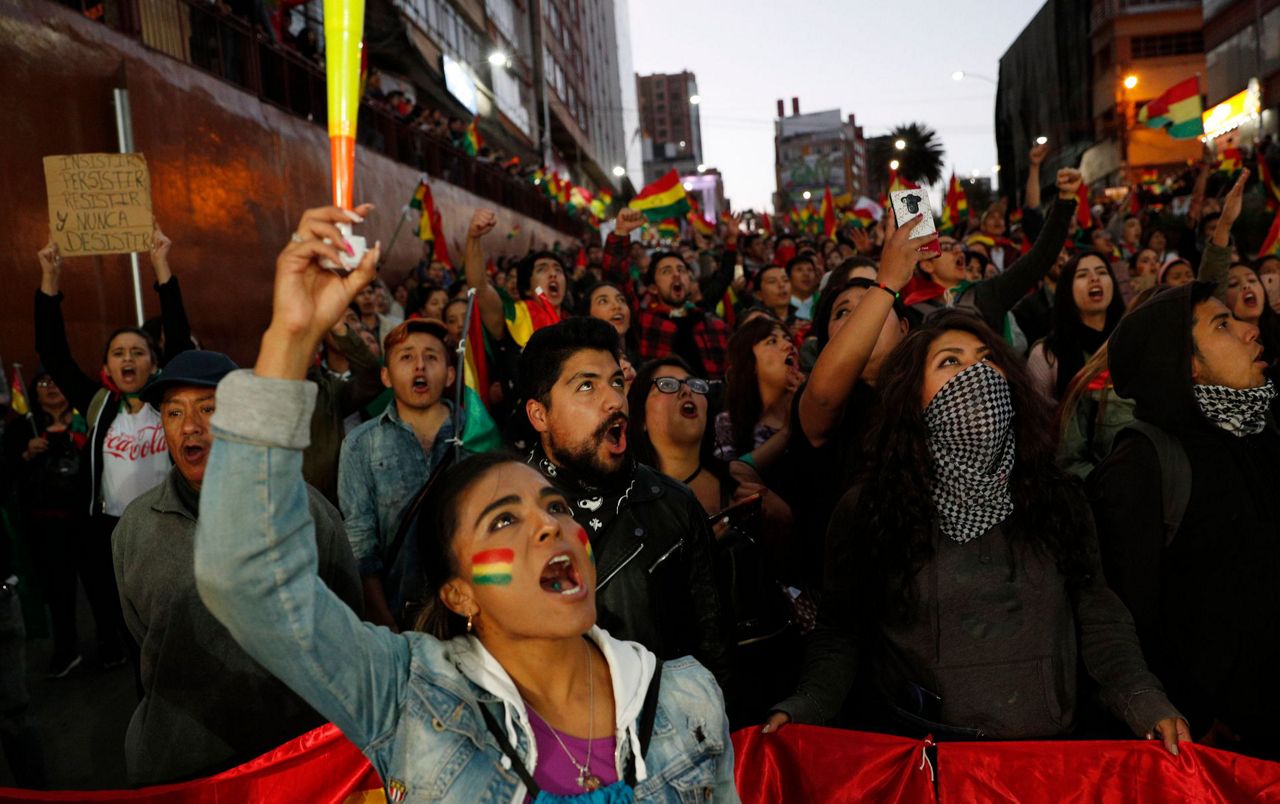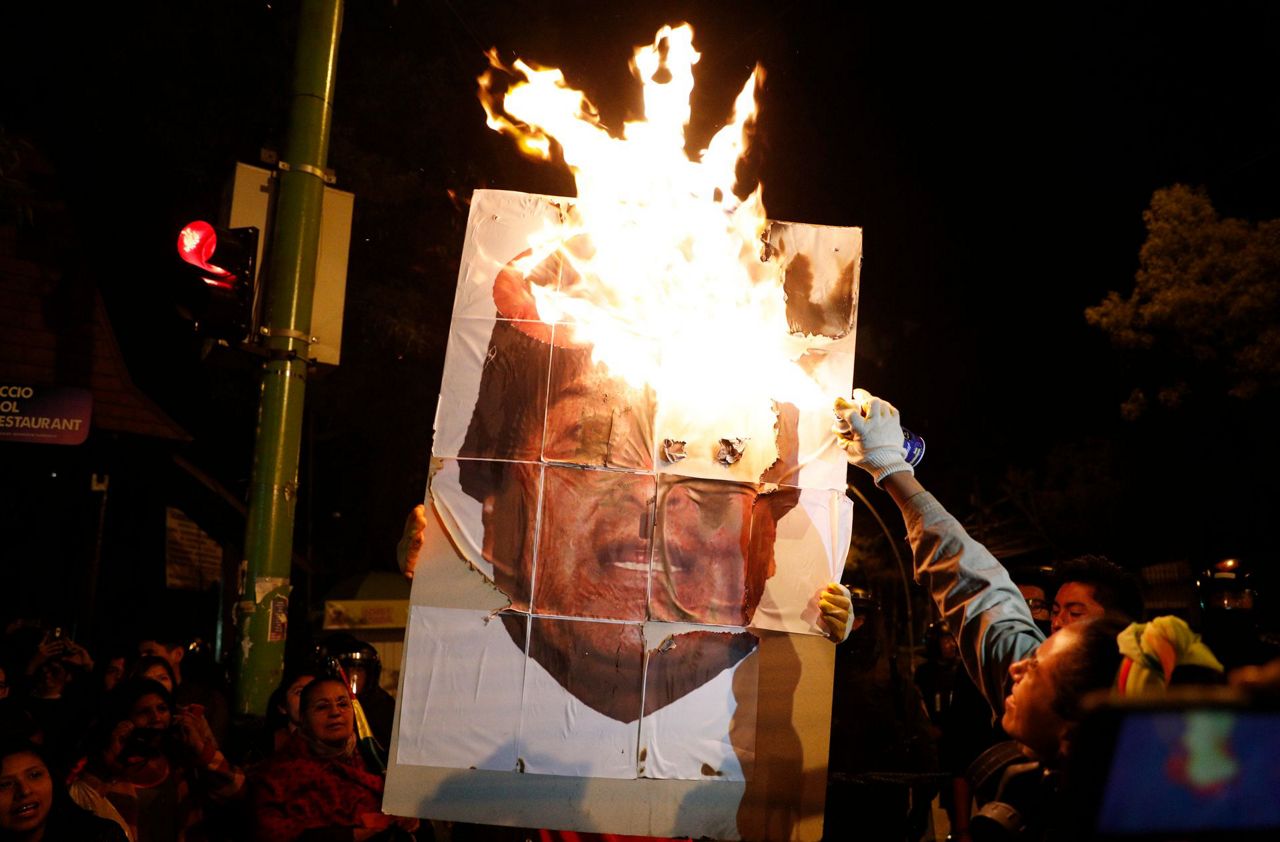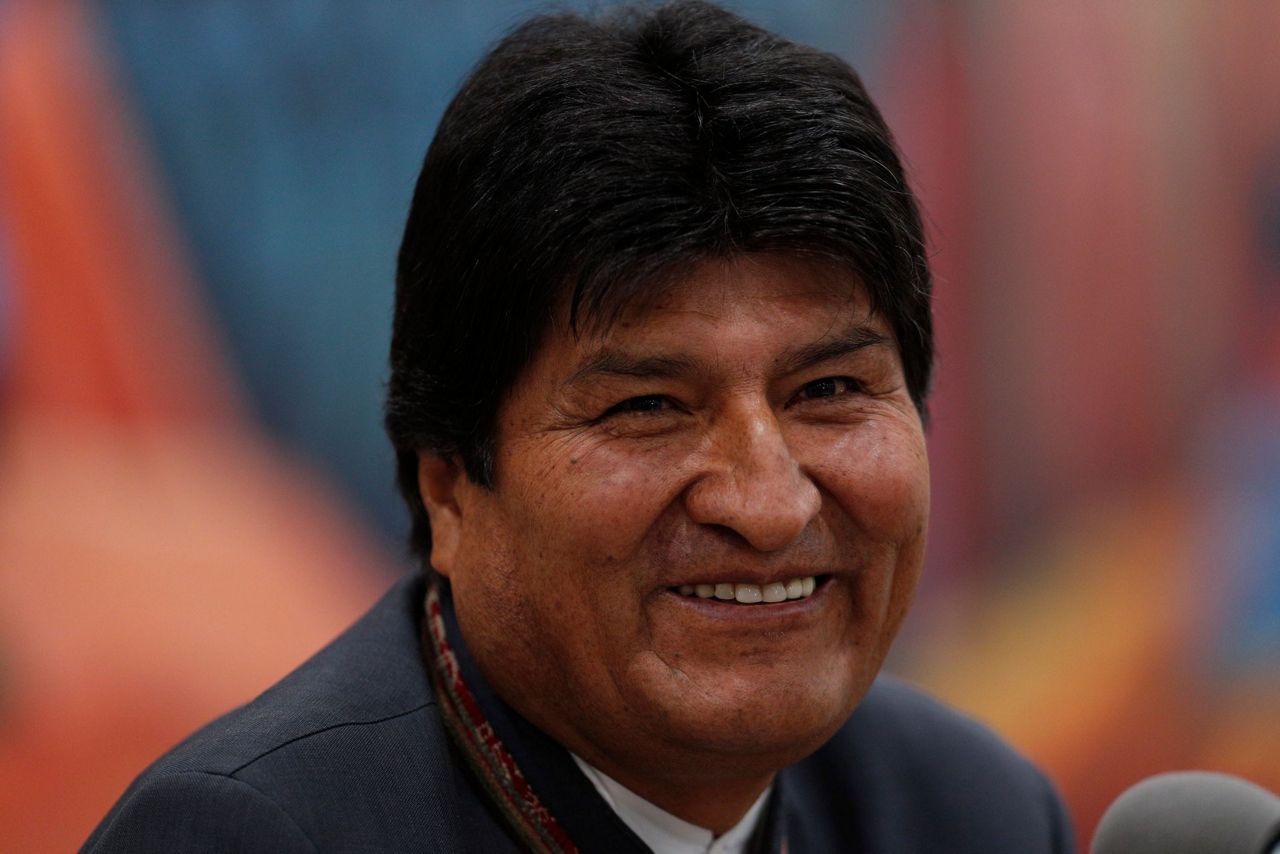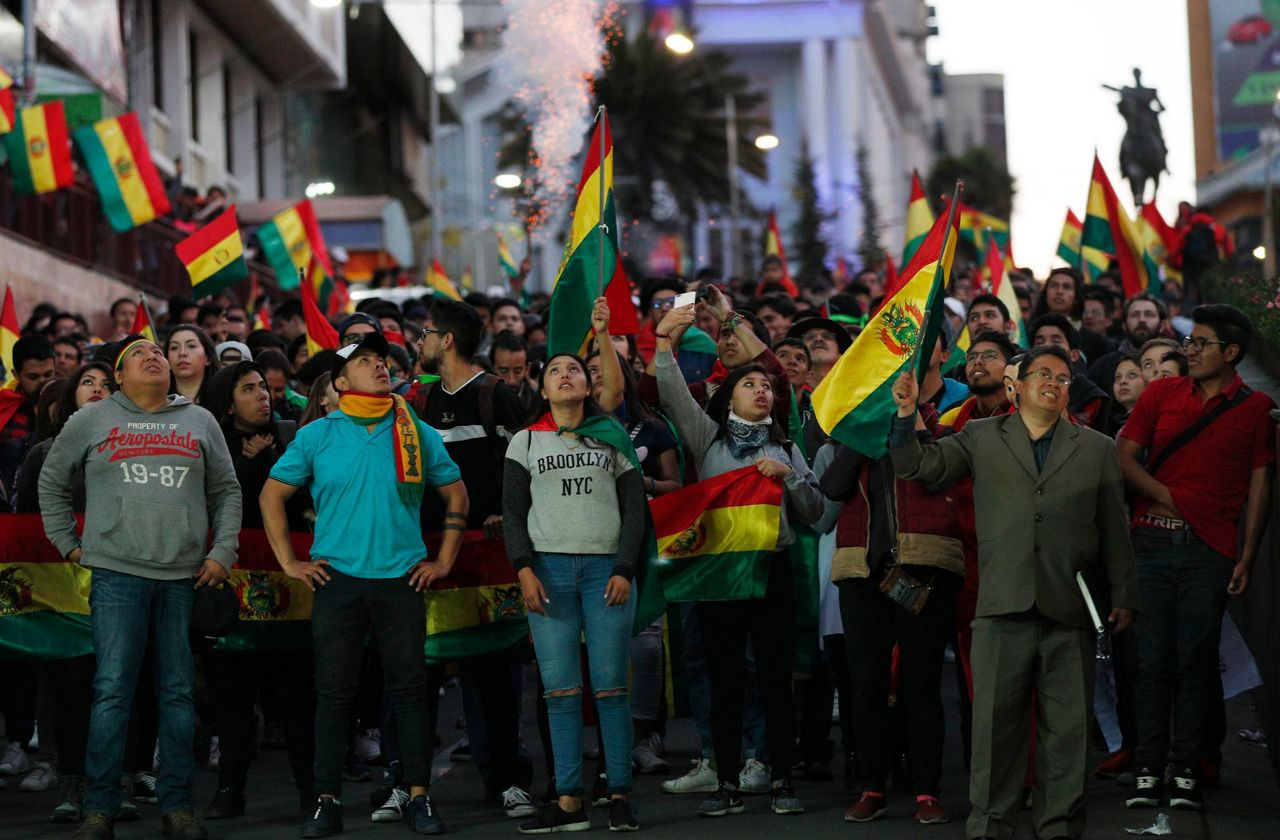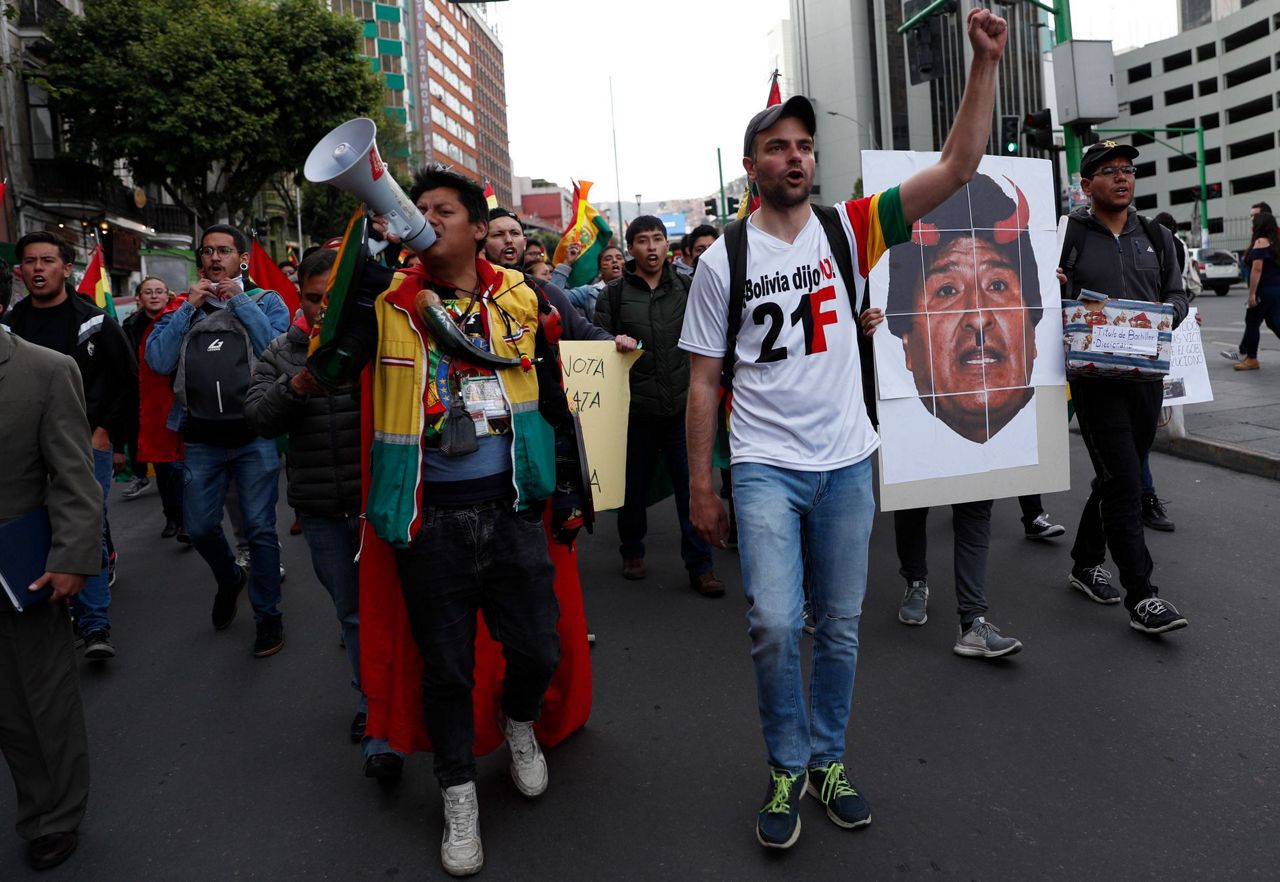LA PAZ, Bolivia (AP) — Bolivian President Evo Morales said Saturday he'd welcome an international audit of his disputed re-election and if vote fraud is found he would call a second round of voting.
Electoral authorities say the socialist leader narrowly won enough votes Sunday to avoid a December runoff against his nearest rival, former President Carlos Mesa, which might have seen opponents unite against him.
Mesa and others opponents have alleged electoral fraud, and Bolivia has seen nearly a week of protests in major cities. The Organization of American States, European Union and some neighboring countries say the result was so close and so disputed that it would be best to hold a second round.
U.N. Secretary-General Antonio Guterres said the world body supports an audit of Bolivia's election results to be done by the OAS.
"Let them come! Let's have an audit — vote by vote, ballot box by ballot box, city by city, province by province! I will accompany them and if there is fraud, the next day I'll call for a second round," Bolivia's first indigenous president said.
The protests demanding a second round of voting continued Saturday, with large marches and road barricades in eight of the Andean nation's nine regions. In La Paz, protesters marched to the center of the city near the government palace with people banging pots out their windows in a sign of support.
The final count of 100% of ballots from Sunday's election gave Morales 47.08% of the votes in Sunday's election against 36.51% for runner-up Mesa, more than the 10 percentage point difference needed to win outright. Morales has declared himself the winner but the Supreme Electoral Tribunal has not declared a victor.
Morales' opponents have questioned the fairness of the vote count, which included an unexplained 24-hour halt in reporting of vote results.
Mesa has accused the president of staging "a monumental fraud" in his effort to win a fourth straight term. Morales, in turn, has accused opponents of trying to oust him in a coup d'etat with international support.
The U.S., Brazil, Argentina and Colombia have called for Bolivia to hold a runoff between Morales and Mesa, who finished ahead of the seven other candidates. The governments of Venezuela, Cuba and Mexico have congratulated Morales on his win.
Suspicions of electoral fraud rose when officials abruptly stopped releasing results from the quick count of votes hours after the polls closed Sunday. Morales was leading at the time, but also falling several percentage points short of the 10-point edge he needed to avoid a runoff.
Twenty-four hours later, the electoral body suddenly released an updated figure, with 95% of votes counted, showing Morales just 0.7 percentage point short of the 10-point advantage.
Morales, who just turned 60, a native Aymara from Bolivia's highlands, was first elected in 2006 and easily won the two following elections amid as he governed during more than a decade of a commodities-fed economic boom. He paved roads, sent Bolivia's first satellite to space and curbed inflation.
Still, he has faced growing dissatisfaction, especially over his refusal to accept the results of a 2016 referendum to keep limits on presidential terms.
Copyright 2019 The Associated Press. All rights reserved. This material may not be published, broadcast, rewritten or redistributed.



